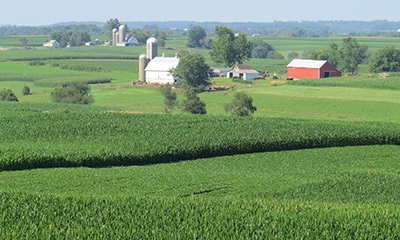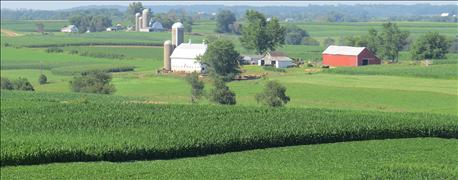April 13, 2016

With the varying business planning that family farms utilize, it is common to have leases among related parties. For example, the senior generation may have transferred most of the equity in the farm operations to the next generation, but retain the farm’s land base.

With verbal leases, Wisconsin law dictates that the lease will automatically renew for another year unless either party provides notice at least 90 days before the end of the lease term.
There are certain benefits for the senior generation to own and lease the farm’s land base to the farm operation. One benefit is that mom and dad receive a return on their investment, i.e. annual rent payments, while retaining the land. According to the USDA the average Wisconsin cropland rent in 2014 was $130 an acre. Therefore, if Mom and Dad rent 200 acres of tillable land to the farm entity, they will receive $26,000 a year to help pay their living expenses.
When determining rent amount, a family should set a reasonable rent. The IRS has determined that rent paid to the landowner cannot be unreasonably high as deductions for related party leases are not allowed in excess of reasonable rents. The rent paid to the landowner also cannot be unreasonably low. Another tax consequence is the fact that rent is not subject to self-employment tax if the landlord is not materially participating in the farm. When setting rental value between related parties, the family must consider these issues to set a fair rental amount.
A major factor to consider in leases among unrelated parties is the term of the lease. Agricultural leases are commonly structured as one year set terms. However, many agricultural leases have an automatic renewal clause where the lease renews unless one party gives notice of termination before the renewal date. This structure is useful if you have a long term relationship with your landlord or tenant and intend to keep renting for many years. However, you should discuss whether rent stays the same, rises a certain percentage or is renegotiated each year.
Lease terminations may cause problems in agricultural leases. With verbal leases, Wisconsin law dictates that the lease will automatically renew for another year unless either party provides notice at least 90 days before the end of the lease term; commonly the end of the calendar year. Wis. Stat. § 704.19(3). Landlords who do not follow this requirement may be unwillingly required to lease to the previous tenant for another year. Further, problems arise when a landlord sells farmland around the end/beginning of the year. The buyer likely intends to crop that year plus many offers grant the buyer immediate possession rights, so the deal could be jeopardized if the tenant has rights to lease for another year.
Leases for a set term end after that term, however, the landlord may allow the tenant to holdover on a year-to-year basis. Wis. Stat. 704.25(2)(a). The landlord should not be complacent at the end of a lease which may allow the tenant constructive rights to lease for another year. For example, if the landlord does not provide notice that the lease ended, plus the tenant works the land in spring or the landlord accepts rental payments, the tenant may have the right to lease another year. The best practice is to provide the tenant with 90 days written termination notice regardless of the type of lease. Also, if the tenant begins working the land in early spring, or pays rent to the landlord, the landlord should return the payment and give notice to the tenant highlighting the fact that the tenant has no rights to the property.
The issues discussed in this article are just a few considerations for landowners and tenants when leasing farmland. Whether you are leasing among related or unrelated parties, you should take time and care to ensure you are entering into a relationship that will benefit both parties and adhere to various state and tax laws.
Knickelbein is a partner in the ag law firm of Twohig Rietbrock Schneider & Halbach S.C. Call Knickelbein at 920-849-4999.
You May Also Like




